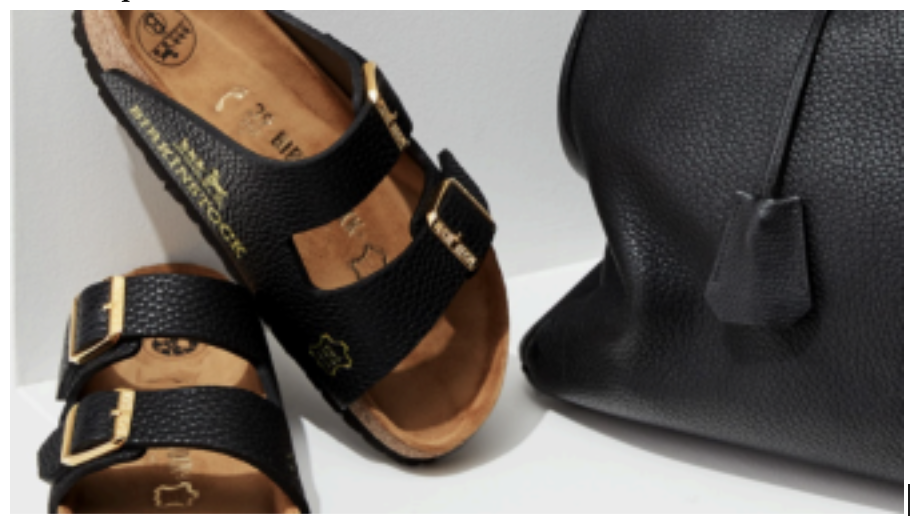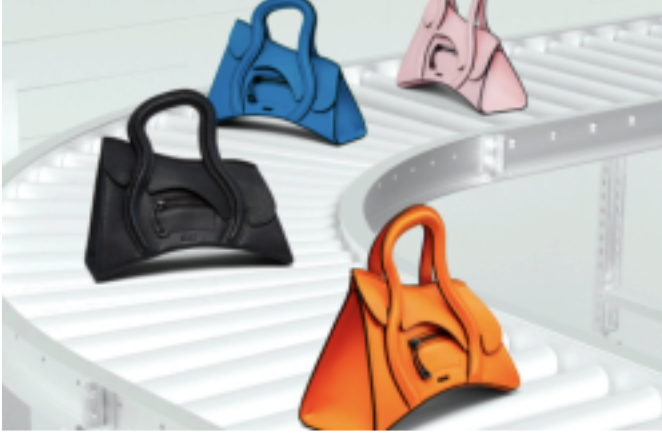The Satirical Art Collective Known as MSCHF
MSCHF, the Brooklyn-based art collective, is revolutionizing today’s fashion industry by transcending normative fashion with its seemingly absurd pieces, satirizing the ridiculousness of trends and standards. Gabriel Whaley, CEO and Founder, and Kevin Wiesner, Chief Creative Officer, are just two of the many innovative minds behind MSCHF. They built this collective on their distinctive point of view that perfectly utilizes the intersection between art, technology, and fashion. The captivating essence of MSCHF lies in how they uniquely employ satire to comment on how the fashion industry takes itself so seriously yet perpetuates ridiculous trends. Because of this and their solid brand values that harp on creativity, individuality, and ambition, each MSCHF drop is more surprising, thought-provoking, and riveting than the last… and may have even caused the brand some trouble.
The fashion industry is massive, and it has become more and more challenging not only to break into it but also to create something that is distinctive and incomparable to competitors. With MSCHF’s virality and controversial yet iconic moments, they have done just that. They continuously prove to the industry why they are absolutely unparalleled with their use of accessories as a vessel for satirical social commentary. The collective has become super high-profile, making its mission of starting conversations about consumer culture more effective than ever.
Something Controversial - Drop #43
MSCHF’s “Satan Shoes” are one of their more notably recognized products made in collaboration with Lil Nas X, alongside his music video for “Montero: Call Me By Your Name.” 666 pairs of these Nike Air Max 97s were produced with drops of the MSCHF’s employees’ blood in the air bubble, decorated with a pentagram charm, an inverted cross, and a biblical passage referencing Satan. Both the collective and Lil Nas X faced much backlash for what they intended to be a commentary on the absurd collaborative practices employed by many in the industry. The “endorsement of Satanism” and unsanctioned use of a Nike shoe landed MSCHF in a lawsuit, all while the Satan Shoes were being auctioned for upwards of $15,000. This is a testament to the power of MSCHF’s unrepeatable, satirical takes, which may stir up some trouble but create something people want to think about, want to talk about, and most importantly, want to wear.
Something Witty - Drop #39
Birkinstock: no, it is not spelt wrong; these are MSCHF’s version of the Birkenstock Arizona sandal, made from destroyed Birkin bags. Under ten pairs of these shoes were made back in 2021 with no approval from either Hermès or Birkenstock. Ranging in price from $19,500 to
$76,000, Birkinstocks define what it means to “walk on money.” This product’s manifesto lies in the idea that (1) additional steps increase value, and (2) luxury products are made from luxury materials, therefore deeming this creation “the most exclusive sandal ever made.” MSCHF’s fascination with creating something out of another something led to their comical take on hype-beast consumerism. Combining the most luxurious of bags with an accessible shoe has created something confusing, fascinating, and desirable - the elements of a product that MSCHF never skips out on.
Something Chic - Drop #97
Imagine the perfect handbag encapsulating all the design features we know and love from Hermès, Celine, Dior, and Balenciaga’s iconic handbag silhouettes. MSCHF’s Global Supply Chain Telephone handbag is exactly that. It is the product of four different factories’ creative labour in which each was instructed to interpolate one of the brands into the previous factory’s
prototype from the chain. From Peru’s take on a Birkin, then Portugal’s mash-up with a Celine bag, to India’s combination with a Dior, and finally, China’s merger with a Balenciaga, this product is a tribute to the creative labour that often goes unnoticed in the industry. MSCHF has illuminated the invisible performances of the production processes that create all novel and complex objects. Recognizing the beauty and art of cumulative creation that is employed globally is essential to appreciating the fashion we observe, talk about, buy, and wear ourselves.




